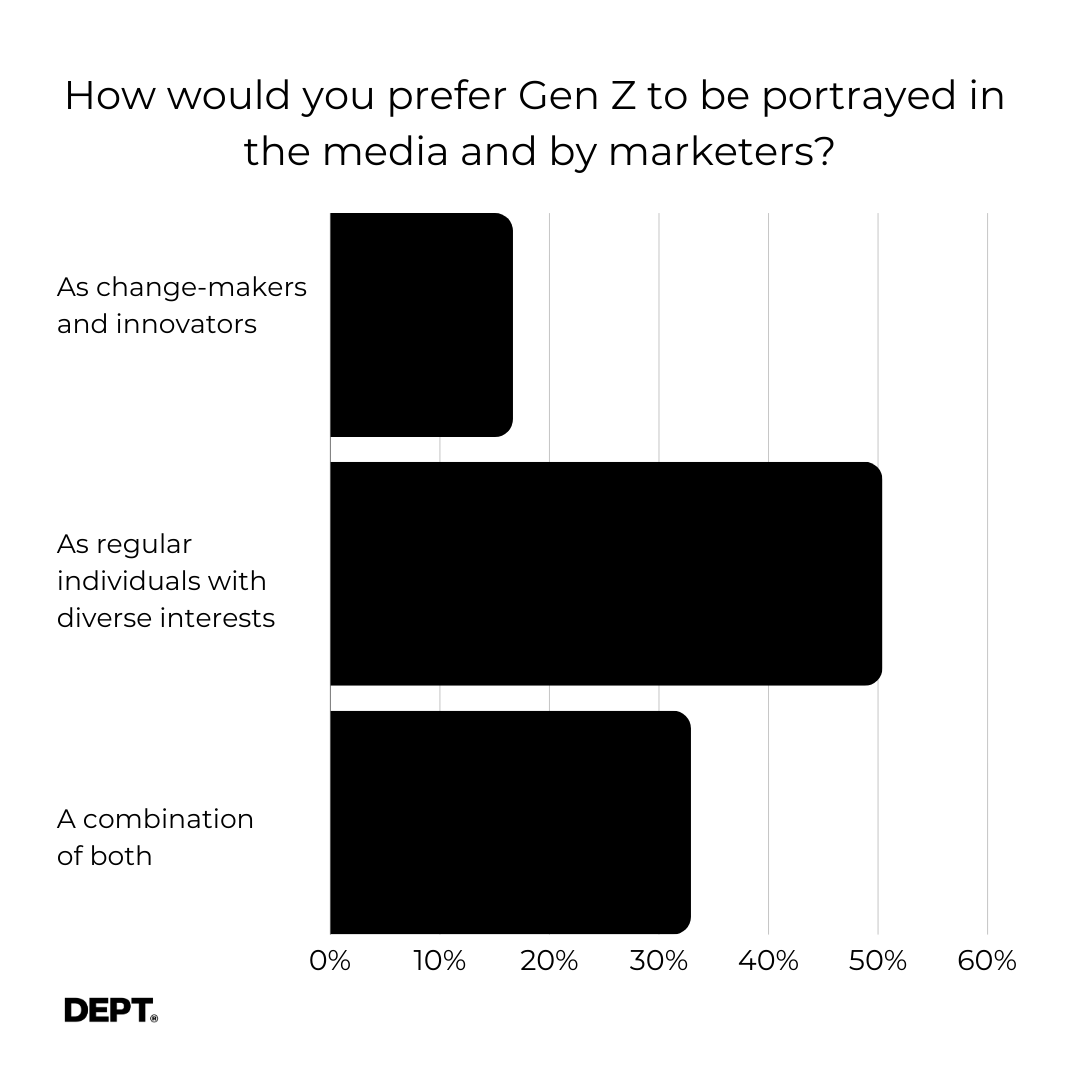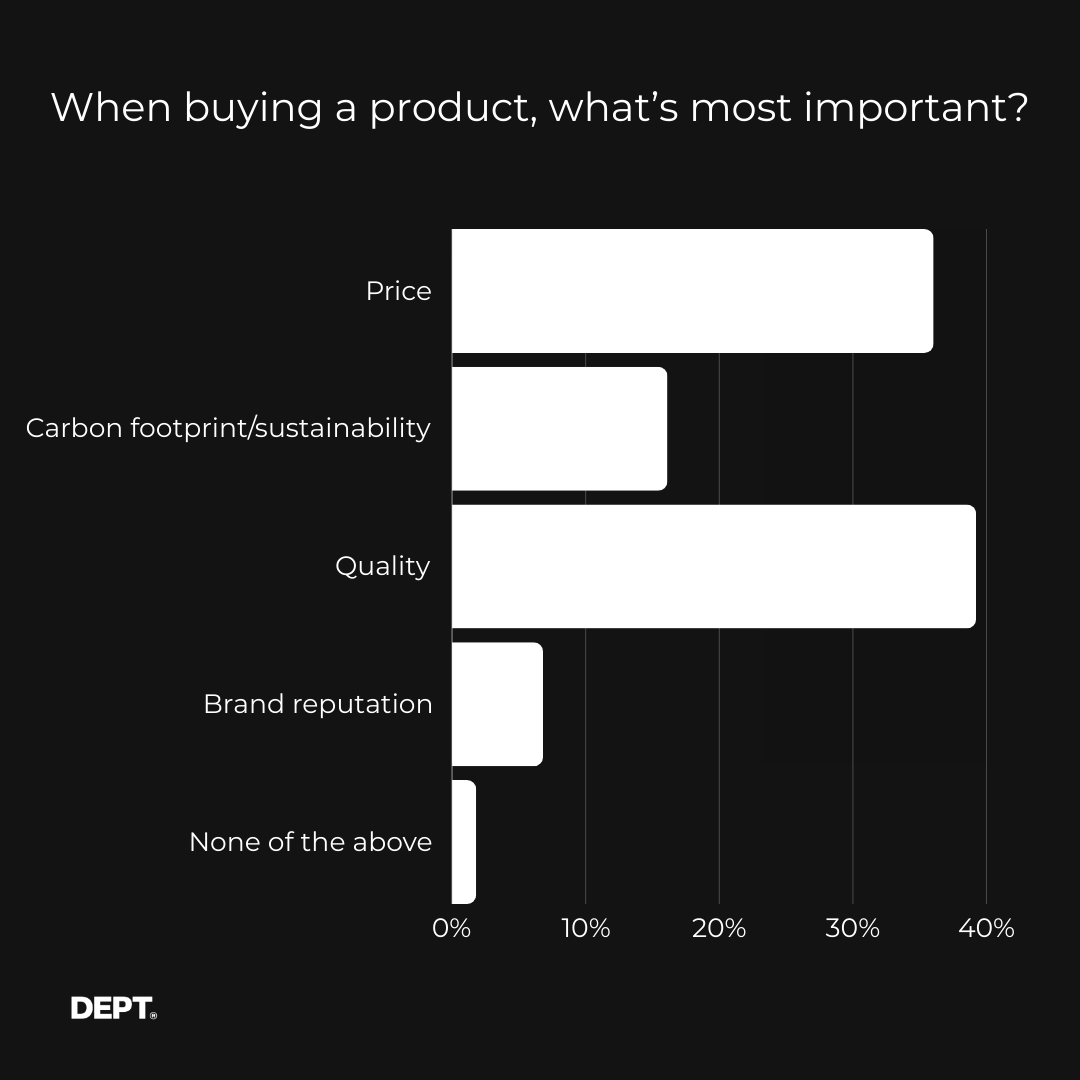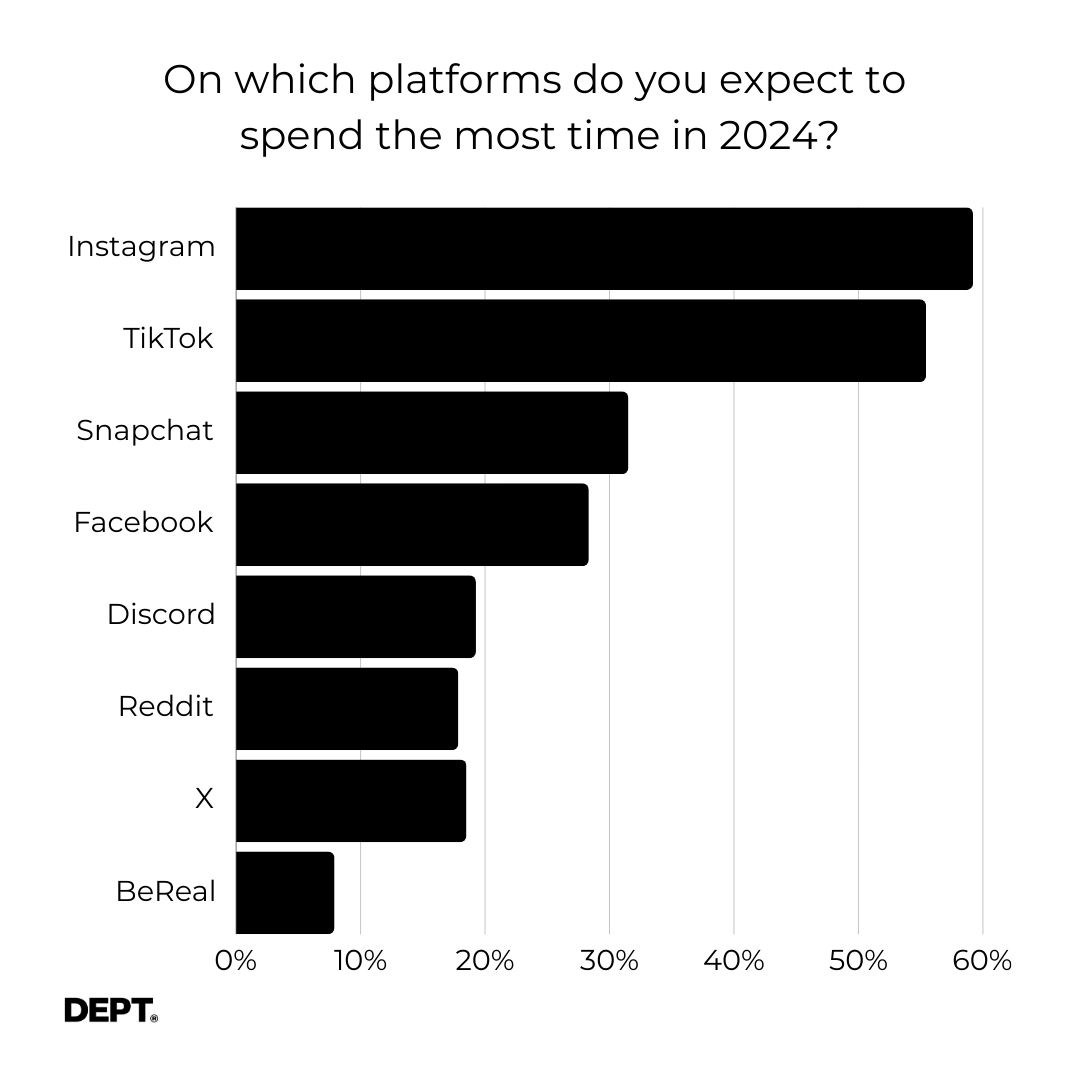In 2024, brands will need to continue their push to connect with the unique Gen Z audience on the platforms they prefer—TikTok, Instagram, and Snapchat—and make sure they are taking into account just how nuanced and authentic this generation is.
To help inform marketers’ Gen Z strategies, we decided to go straight to the source. We asked nearly 3,000 members of this one-of-a-kind generation how they feel about their portrayal in the media, what it means to be labelled as the generation that will “save the world,” how they approach interactions with brands, and what their social media habits look like.
Here’s what we found.

Portrayal in the media
Sixty-eight percent of people we surveyed feel they are very accurately or somewhat accurately portrayed by the media. However, 52% feel the media portrays them more negatively, while 28% feel their portrayal is balanced.
Interestingly, 67% believe the media accurately or somewhat accurately represents diversity within Gen Z, including factors like ethnicity, gender, and socioeconomic backgrounds. Thirty-seven percent feel indifferent about being labeled as the generation that will “save the world,” while 27% feel proud and motivated and another 27% feel stressed and scared. Ten percent went on to call it an unfair burden of their generation.

When asked about how they would like to be portrayed in the media, 50% said as regular individuals with diverse interests, while 33% said a combination of that plus change-makers and innovators.
Buying habits & engaging with brands

When buying a product, Gen Zers rank price and quality as most important – 39% prioritise quality, while 36% are focused on price. Carbon footprint and sustainability came in at just 16% followed last by brand reputation at 7%.
When asked which type of advertising resonates most with them, 27% of respondents ranked personalised ads on platforms like YouTube and Instagram as their top choice, followed by influencers and brand’s social media at 22% each, search ads at 12%, television advertising at 9%, billboards and outdoor digital signage at 4% and print media at 3%.
Fifty-seven percent also said they are more likely to buy from a brand when they feel the shopping experience is highly personalised to their needs, interests and past purchases, while 23% said they don’t actually care much about personalised experiences.
When deciding which brands to engage with, we asked how important it is to support brands with a social or environmental mission. Seventy-eight percent said it is important or very important.
Social media & technology
We asked respondents how often they spend time online in a typical day, and the top choice was 2-3 hours (44%), followed closely by 4+ hours (40%).
When asked which platforms they spend most of their time on, 59% said Instagram, 55% chose TikTok, 32% voted for Snapchat and 28% selected Facebook. The rest of the votes were split across Discord and X (both 19%), Reddit (18%) and BeReal (8%).

Additionally, when asked how they keep up with recent tech innovations, 54% said via social media, followed by an even split between news outlets, industry publications, online forums and word of mouth.
Not surprisingly, 65% said they are more tech-obsessed than other generations.
Finally, 40% said they are scared about the rise of AI and frequent headlines about how it will replace jobs in the near future. Interestingly, 24% said they are indifferent to AI, 22% said they are optimistic about its potential impact on their future careers while 14% said they are angry.
40% of Gen Z are scared about the rise of AI and frequent headlines about how it will replace jobs in the near future.
Takeaways for brands
Maybe none of this data is surprising to you—or maybe it is. What stands out to us is the fact that nothing about Gen Z is cut and dry.
In 2024, here are a few things brands can keep in mind to better connect with this unique generation:
01 Throw out tradition
For advertisers, your traditional media buys and ATL campaigns just won’t cut it moving forward. Brands stuck with C-Suites who hold on to the way things are (or should be) will fall out of favor and fail to connect with tomorrow’s consumers.
02 Gen Z won’t fix our mess
In some way shape or form, each generation fills in the gaps and cleans up for the generation before them. Brands need to understand that the mechanics that hold up our capitalist society are being challenged by Gen Z. We might just have to imagine new levers that define businesses’ success beyond just dollars and cents.
03 There is only one planet
No amount of money paid to lobbyists or PR campaigns that downplay the impending doom of our world makes these campaigns resonate with Gen Z. Science will win in this instance, so you should consider the implications and impact you make on the world and implement changes to demonstrate your commitment to our planet’s future if you plan to win with Gen Z and beyond.
04 AI is more than just the name of a company
OpenAI has offered the world a glimpse into technology that has the potential to shift the entire outlook and future of our world. While Gen Z is curious about the technology, many are scared/hesitant to fully embrace it as a viable plan to evolve our world.
It’s clear that behind the curtains within the industry, there are very differing points of view and emotions are running high. Gen Z is asking the industry to look at the implications of mass adoption from all sides versus letting short-term monetary gains guide our path forward.
Research methodology
The research conducted by DEPT® was distributed in November 2023 to 2,922 users in the United States, aged 18-26, 63% of which identify as female and 37% who identify as male.
More insights
Questions?
SVP of Growth & Head of UKI





